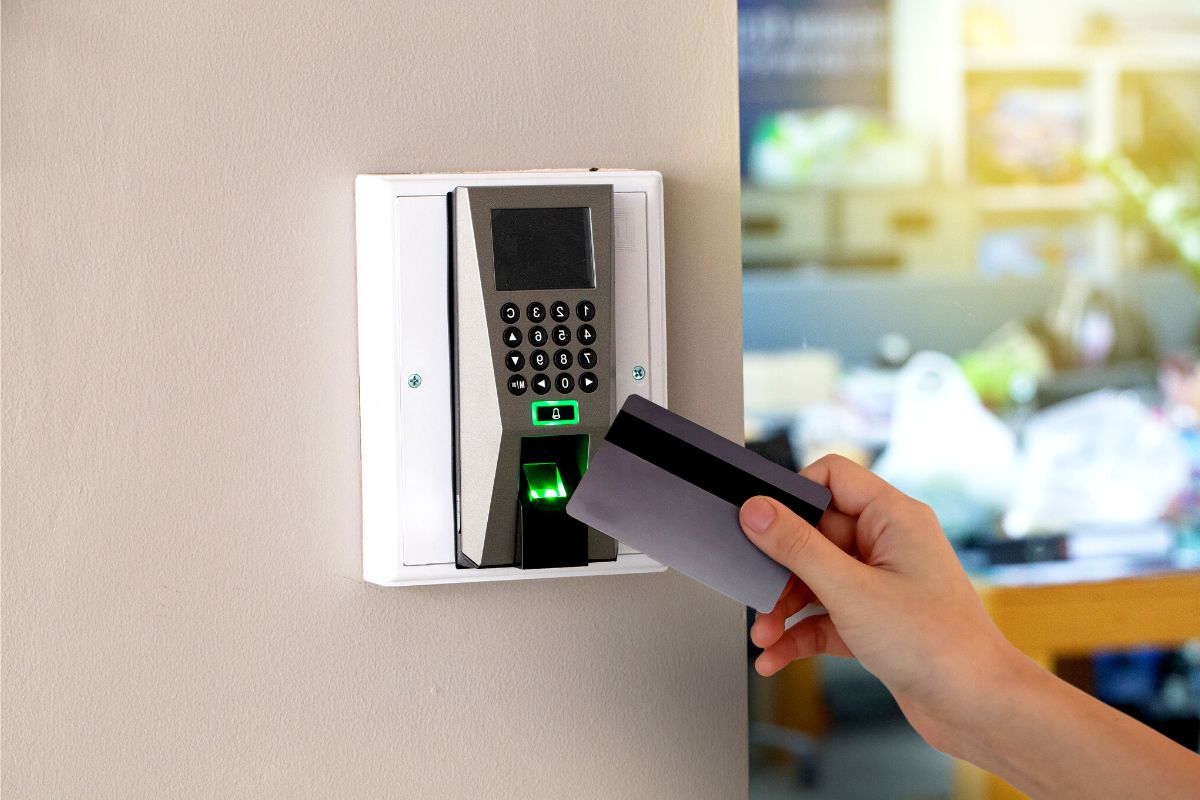In the hospitality industry, ensuring the safety and security of patrons is of utmost importance. That’s where ID scanners come in as a vital tool. ID scanners are electronic devices that can quickly and accurately scan and verify the age and identification of customers.
Due to their numerous benefits, they have become necessary in the hospitality industry. Below are the nine uses of ID scanner machines in the hospitality industry and how they can benefit your business.
Preventing Underage Drinking
One of the most significant benefits of using ID scanners in the hospitality industry is their ability to prevent underage drinking. Serving alcohol to minors can lead to severe legal and financial consequences for businesses, including fines, revocation of liquor licenses, and damage to reputation.
ID scanners can help prevent these consequences by verifying the age of customers before they are served alcohol. By scanning the barcode or magnetic strip on a government-issued ID, such as a driver’s license or passport, It can quickly and accurately determine the customer’s age and ensure they are legally allowed to consume alcohol.
By enforcing age limits, businesses can help reduce the risk of accidents, injuries, and other incidents when minors are served alcohol.
Managing VIP Lists and Special Events
ID scanners are crucial in managing VIP lists and special events in the hospitality industry. With ID scanning, you can verify the identity of their guests and ensure that only those on the guest list or with valid identification can gain access.
This helps prevent uninvited individuals from attending exclusive events, which can cause security and safety concerns.
In addition to preventing unauthorized access, It can help establishments manage VIP lists more efficiently. This can help enhance the overall experience for guests, resulting in better customer satisfaction.
Using ID scanner solutions to manage special events can also provide benefits in terms of security and safety. By verifying the identity of guests, establishments can have better control over the crowd and prevent unwanted incidents. In case of any issue, tracking and identifying the responsible individuals can be easier, helping to reduce liability concerns.
Fraud Prevention
Fraud is a significant issue in the hospitality industry, especially regarding age verification. It can help prevent fraud by detecting fake IDs and preventing individuals from using stolen or borrowed IDs.
ID scanning hardware uses advanced technology to scan IDs and analyze the information stored on them, including the magnetic stripe or barcode. They can also verify the authenticity of the ID by checking for watermarks, holograms, and other security features.
Speeding Up Check-In Processes
When it comes to check-in processes, efficiency is key in the hospitality industry. ID scanning can significantly speed up this process and provide a better experience for guests. With ID scanners, hotel and resort staff can quickly and accurately verify the identity of guests, reducing the time it takes for them to check-in.
By scanning a guest’s ID, the system can automatically fill in the necessary information, reducing staff time manually entering data. This can significantly reduce wait times and improve overall guest satisfaction.
Benefits of using ID scanners to speed up check-in processes:
- Reduce wait times and increase guest satisfaction.
- Staff can process more guests in less time, increasing productivity.
- Reduces human error and potential mistakes when entering guest information manually.
Record Keeping and Reporting
ID scanners can also be valuable for record-keeping and reporting in the hospitality industry. By scanning and storing customer information, establishments can keep track of essential data such as age verification, visit frequency, and other customer behavior. This information can then be used for reporting and analytics, providing valuable insights into customer demographics, spending habits, and more.
Explanation of how ID scanners can store customer information and track customer behavior for reporting and analytics
ID scanners can store customer information, including name, date of birth, and ID expiration dates. This information can track customer behavior and generate reports on customer demographics, visit frequency, and spending habits.
By analyzing this data, businesses/companies can better understand their customers and tailor their offerings and marketing strategies accordingly. Additionally, ID scanners can help establishments comply with regulations by providing a record of age verification and other important customer information.
Access Control for Restricted Areas
One of the key challenges in the hospitality industry is managing access to restricted areas, such as employee-only areas, storage rooms, or VIP lounges. It plays a vital role in ensuring that only authorized personnel have access to these areas. By scanning employee IDs or other authorized forms of identification, ID scanners can quickly verify the identity of individuals and grant or deny access accordingly.
Age Verification for Tobacco and Cannabis Sales
Using ID scanners for age verification is crucial in selling tobacco and cannabis products in the hospitality industry. With legal requirements and regulations surrounding the sale of these products, it is essential to verify the age of customers to ensure compliance with the law. It provides an efficient and accurate solution for verifying customer age, reducing the risk of non-compliance and legal repercussions.
ID scanners can quickly and accurately verify customer age by scanning the barcodes or magnetic strips on government-issued IDs, such as driver’s licenses or passports. The scanners can read the encoded birthdate information on the ID, eliminating the possibility of human error or fake IDs. This verification process can be done in seconds, allowing for a seamless and efficient transaction process.
Data Protection and Compliance
Data protection and compliance are critical for the hospitality industry, and ID scanners can address these concerns. By securely collecting and storing customer information, It can help businesses comply with data protection regulations and avoid costly data breaches.
Secure Data Storage
ID scanners can collect and store data such as names, birthdates, and ID numbers, which are critical for verifying customer identities and ensuring compliance with legal age restrictions. Storing this information in a secure database, ID scanners can protect customer privacy and prevent unauthorized access to sensitive data.
Compliance with Regulations
Data protection regulations, such as the General Data Protection Regulation (GDPR) and the California Consumer Privacy Act (CCPA), have strict requirements for collecting and storing customer data. ID scanners that comply with these regulations can help businesses avoid costly fines and legal issues associated with non-compliance.
ID scanners are becoming increasingly crucial for the hospitality industry, providing various benefits, from preventing underage drinking to ensuring compliance with legal regulations and data protection.
Businesses can use ID scanners to improve security and streamline operations, reducing wait times and ensuring only authorized individuals can access restricted areas or events. Additionally, It provides valuable data that can be used to track customer behavior, streamline marketing efforts, and improve customer satisfaction.
Final Thoughts
ID scanners are vital for any hospitality business looking to improve operations and provide guests with a safe and secure environment. With the ability to prevent underage drinking, manage VIP lists and special events, prevent fraud, speed up check-in processes, and more, ID scanners are an essential investment for any business in the hospitality industry.
By using ID scanners, businesses can ensure legal compliance and improve customer satisfaction and loyalty, ultimately leading to increased revenue and success.












